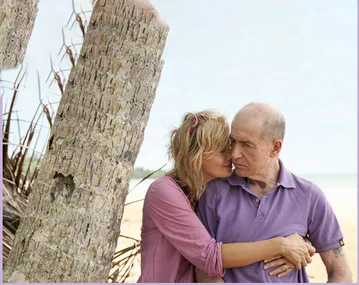As we enter adulthood and navigate everything that comes with it – work, kids, a mortgage right through to caring for an elderly family member – our childhood starts to feel further and further away. Life moves on and we ‘just get on with it’. That is, until you feel like you can’t.
Increasingly, research shows that major issues in adulthood – from addiction and anxiety to compulsive overeating and relationship issues – can be better understood, and resolved, by looking back toward our childhood. Because let’s face it, childhood is where we first learn how to relate, where we develop our sense of self-worth and our interpersonal skills.
For anyone who experienced trauma in their early, formative years, those feelings can linger in your psyche and resurface later in life, explains Diane Young, Addiction and Trauma Specialist and consultant.
“Many of us who see ourselves as ‘successful’ adults don’t relate our current behaviours and values to childhood experiences, until something becomes problematic and a professional connects it back – this can often be a light-bulb moment.”
Young explains that “even if the events of our childhood don’t stick in our minds, we can still replay the interpersonal lessons or repeat the coping mechanisms we learned at that time.”
Young has run multiple programs at South Pacific Private in recent years that address childhood trauma in a holistic way and are designed to identify and resolve lingering childhood trauma. When South Pacific Private opened its doors in 1993, it was the first Australian facility to offer trauma-informed and family-focused workshops as core elements of its program.
Want to know more about how childhood patterns can affect your adult relationships? Here, Young helps us connect the dots between our past and our present.

What is the definition of childhood trauma?
” It is any experience that has a negative impact and is overwhelming to the child. Adverse Childhood Experiences (ACEs) include abandonment, neglect, divorce, death, being raised in a family with addicted parents or parents suffering with mental health issues. Abuse, of course, plays a significant role – whether it is sexual, physical, emotional or spiritual.”

How can childhood trauma sabotage relationships?
“Unresolved childhood experiences can sabotage our relationships in a whole host of ways; it may turn up as sexual dysfunction, affairs, not wanting sex or addiction (including alcohol, drugs, gambling, shopping, work, disordered eating) or it can present as extremely low self-worth, an inability to set healthy boundaries or maintain healthy relationships.”
“Difficulty regulating feelings is another common symptom; clients find themselves either overwhelmed with rage or they are emotionally frozen, finding connection and expression near impossible. All of which can be obvious to their partner and family, but not to the sufferer.”
How can you recognise that you have a problem and that it’s linked to past events?
“When the behaviour, substance or emotions seem to have control of you, rather than you having control of them – that’s a key sign that you have a problem. The behaviour will be something you’re using to dull your pain or not feel at all. Other signs include feeling on ‘high alert’ all the time, having flashbacks, experiencing high levels of anxiety, co-dependent relationships and low self-esteem.”

What shouldn’t you say to someone dealing with childhood trauma?
“’Get over it’, ‘it wasn’t that bad’ and ‘what’s wrong with you?’ are statements that are shaming and judgmental. They’re not helpful for the person suffering with a significant mental illness and can actually make things worse.”
How can someone break the habit of repeating past negative behaviours?
“Reach out for help – usually this is from a partner, friend or family member. And make the call to a mental health professional – a therapist, counsellor or GP. As overwhelming and as isolating as it may feel, you’re not the first person to go through this. There is help available if you reach out.”

How do you treat childhood trauma, depression and anxiety?
“At South Pacific Private, each client is addressed individually. The experts work with the client to gently unpack their trauma and hold them whilst they navigate this painful place. They look at any addictions that are present and then support them with any relational difficulties they are experiencing in their lives.
On-going support is offered through day programs when they have completed their inpatient program. We truly believe everyone is capable and worthy of recovery.
Help and Information:
If you would like more information on South Pacific Private for yourself or a loved one, call 1800 063 332, seven days a week or take a free self-assessment here.
If you or someone you know needs help now, call Lifeline on 13 11 14. If someone is in immediate danger, call Triple Zero (000).










